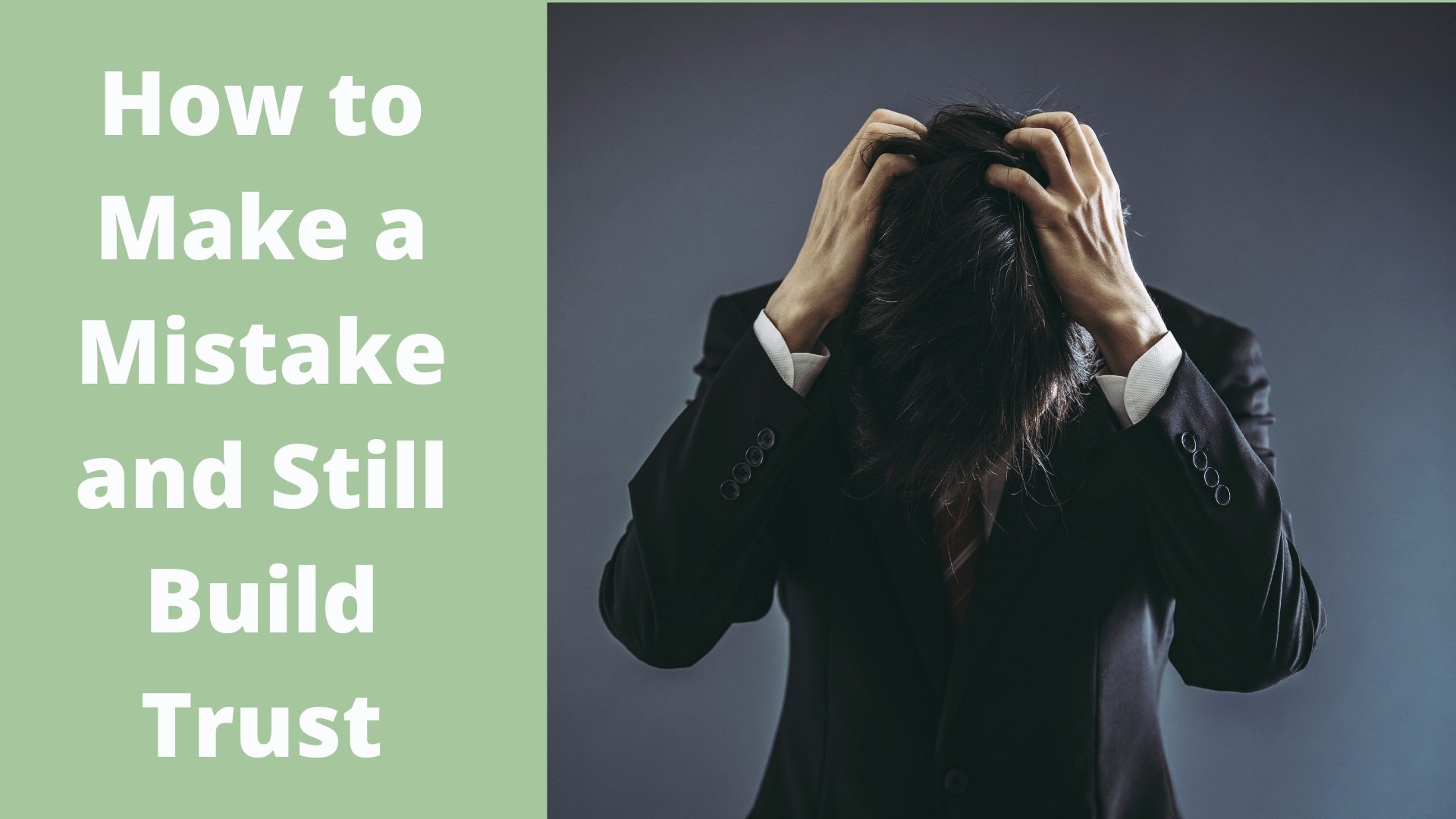How to Make a Mistake and Still Build Trust
Wow that was a mistake!! How did that happen? Why is it so hard to accept that you, as a leader, will make mistakes? Hard as it may be to admit, you're not immune from misreading a situation, letting your emotions take over or taking action that goes wrong.
Your decisions and actions do impact others. They can ripple through your team, department and, in some cases, your organization. They can even impact clients and the ability to deliver a service or product.
This can be a heavy burden for a leader to carry and may lead to the belief that, as a leader, one can't afford to make a mistake. That would be a "mistaken" (pun intended) belief .
So the real question is, how will you handle yourself when (not if) you make a mistake?
How you respond to this question will determine whether you build or erode trust with those you lead and influence.
It is actually possible to build trust after making a mistake. Here's how:
1. Take responsibility for the mistake.
As soon as you can, take responsibility for the mistake. Gather those who have been impacted (one or many) and clearly state what happened and why it was a mistake. If you're not sure what happened, don't wait to take this step. Share what you know and that you'll share more when you know more.
2. Acknowledge the impact of the mistake.
It's not enough to acknowledge the mistake. It's even more important to acknowledge the impact of the mistake. If you don't fully understand the impact, seek more understanding by asking questions. "How did/will this impact you?" "Based on what happened, what concerns you?" When you understand the impact, respond appropriately. Many times an apology is in order. If so, make it sincere and specific. "I'm sorry that my mistake caused you to . . ."
3. Share what you will do (or are doing) to remedy the situation.
Having acknowledged the impact of the mistake, share your next steps toward remedying the situation. It may be steps for a recovery, a simple adjustment or a promise to seek understanding before reacting. If you're not sure of the most effective remedy, ask "What can I do to remedy this situation?"
4. Check in with those impacted.
When you believe the impact of the mistake has been remedied, check in again with those impacted. Do they feel that the mistake been remedied; that the appropriate adjustments have been made; that you will respond differently in the future?
5. Take time to identify lessons learned.
You'll want to do this both privately and with those impacted. What have you learned about yourself in this process? What changes will you make in your approach to challenges in the future? What did those impacted learn about you and themselves? How might they help you avert a mistake in the future?
Take a moment right now to think about a situation in which someone made a mistake that impacted you. If they had followed these steps, would you trust them more or less?
It's not the mistake itself that impacts trust. It's your ability to acknowledge the impact of the mistake, your willingness to remedy the situation and your follow through that will help you build trust when you do make a mistake.
About the Author
Gayle Ely is a Leadership Coach, Trainer and Facilitator who believes Passionate Leadership can change the world. She works with business and non-profit leaders and service entrepreneurs to help them perform more effectively so they and their businesses can thrive.
Click here to subscribe to my weekly newsletter.
Linked-In profile
Explore what’s getting in the way of passion in your leadership. Schedule an exploratory conversation. There is no cost and lots of value.

